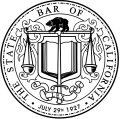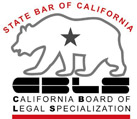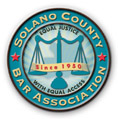Criminal Appeals Overview
Experienced Appellate Attorneys in Solano County
Law Offices of Russo & Prince is one of the few highly experienced appellate firms in Solano County. We offer skilled legal representation in all criminal appeal matters. Appellate law is a specialized area of practice - and can be very complicated and confusing to the inexperienced attorney or self-represented party. Attorneys Leslie Prince and Esther Wilch have extensive experience successfully representing clients on appeal. Review our Appellate Victories page for further information.
What is an Appeal?
The first thing you need to know is that an appeal is not a retrial of your case. You do not get a second chance to present your evidence or defend yourself in front of a different jury. An appeal is heard by an appellate judge (or panel of judges) and is based on the record of the trial.
What does this mean? It means that no new evidence is heard, and the evidence presented at trial is not re-examined per se. In an appeal, you must argue that some legal or procedural error was made in the trial that justifies reversing the conviction. This is why it is important to have an experienced appellate attorney review the record of your case and determine whether you may have grounds for an appeal.
Types of Appeals
Under California State law you have the right to appeal any criminal conviction, but it must be done within the time permitted by law. Subsequent appeals may, or may not, be heard depending upon the issues involved and how well the petition to the appellate court is drafted. The skill and knowledge applied in this process will determine, in nearly every case, whether the appellate court will consider granting review. Even if the defendant initially pled guilty, there is still a possibility that the court will grant an appeal in limited circumstances.
You should talk to an attorney as soon as possible if you feel you may have grounds for an appeal. This process is time sensitive and you do not want to miss any applicable deadlines. Contact attorney Leslie Prince today for a free consultation concerning your criminal appeal.
In California, direct appeals are generally heard by the appellate division of the superior court in the case of misdemeanors, and by the California Court of Appeal for felony convictions. In addition to filing a direct appeal from a conviction, there may be options for collateral appeals and other types of post-conviction relief, such as a writ of habeas corpus or mandate, which may be heard in the trial or appellate courts. The right type of appeal to file differs depending upon the grounds for the appeal you are asserting.
Grounds for Appeal
Not every error made at trial is appealable or will even benefit you if you did appeal. If the appellate court agrees that an error was made, the court will still distinguish between "harmless" error (if it did not affect the outcome of the trial) versus prejudicial or reversible error (that justifies ordering a new trial or changing the court's decision). Basically, you have to be able to show that the error was so serious that the verdict would have been different had the error not been made.
Errors that may have affected the outcome or are so serious that they justify reversal include:
- Improper jury instructions - the judge gave faulty instructions to the jury by misapplying the law
- Admission of evidence - the judge allowed prejudicial or hearsay evidence over a proper objection, or the evidence admitted was obtained without a warrant or probable cause or otherwise in violation of the Fourth Amendment protection against unreasonable searches and seizures, including illegally obtained confessions
- Violation of Constitutional rights - the defendant was denied Fifth or Sixth Amendment rights, such as the right to effective assistance of counsel, or the right to confront and cross-examine witnesses
Where the court makes an error of law or mistake over the defendant's objection, that mistake provides the grounds for the appeal. Sometimes, however, there are errors which were not known at the time of the trial but are so important that a reversal or new trial is in order when these facts come to light. These errors often amount to a violation of due process of law, such as in the following circumstances:
- Prosecutorial Misconduct - Under the Supreme Court ruling of Brady v. Maryland, the prosecutor is required to give the defendant any exculpatory evidence it has in its possession which may tend to show the defendant is not guilty of the crime; hiding such evidence is generally harmful error
- Police Misconduct - the police may have planted or fabricated evidence, submitted a false confession or false testimony, or made a false identification or false arrest
- Jury Misconduct - jurors may not use information obtained outside of the courtroom proceedings or lie during jury selection about their background or impartiality
Effect of an Appeal
A defendant who wins on appeal is usually granted a new trial, although there are some instances when a reversal will cause the defendant to go free and not be retried, such as when the state did not prove each element of the crime beyond a reasonable doubt. Also, depending upon the grounds of the reversal, the prosecutor may decide not to retry the case, especially if important evidence for the prosecution has been declared inadmissible.
Use an Experienced Appellate Attorney for Your Appeal
Some clients initially believe that they can hire any attorney to handle their criminal law matter, or even their criminal appeal. However, not many attorneys, and not even many criminal law attorneys, have the skill and knowledge to successfully appeal a criminal matter.
Successful appellate attorneys possess a different set of skills than trial lawyers. An appellate attorney must be able to review a trial transcript and spot the appealable errors, conduct the research and prepare a persuasive petition and/or brief that convinces the court to take the appeal and to rule in the client's favor. Judges do not lightly overturn other judge's decisions, so an appellate brief, and oral argument when ordered, must be compelling. Moreover, there are very strict rules for the style, presentation, and timing for appeals that can be complicated to navigate.
What are the time limits for filing an appeal in a felony or misdemeanor case?
It is essential to act quickly following a trial to secure your right to an appeal; notice of appeal must be filed within 30 days following a misdemeanor conviction, or 60 days after a felony conviction. In some cases, the proper recourse may be to file a motion for a new trial or other motion instead of an appeal, and the time frame for filing such motions is very short. It is important that you have an attorney who understands the proper procedure to utilize and can pursue your case in the proper manner with the best chance for success - your you may even lose your chance to appeal for procedural errors.
How can I get more information about how Russo & Prince can help with my appeal?
As an attorney with over twenty years of trial and appellate experience, Leslie Prince is a skilled and knowledgeable advocate for her clients. She knows how to preserve objections and identify grounds for appeal during trial - and pursues every avenue of relief for her clients. When she is retained on appeal, she knows what to look for when reviewing a transcript and case record, she is skilled and experienced in finding the law on point in your case, and drafting petitions that are likely to be granted. Our lawyers also help those convicted clear their records through expungement, dismissal of conviction, certificates of rehabilitation, and other available post-conviction procedures.
For help with an appeal or other post-conviction relief, contact the Law Offices of Russo & Prince for a free criminal appeal consultation.
 Our
Our Criminal
Criminal Criminal
Criminal Family Law
Family Law Collaborative Law
Collaborative Law





